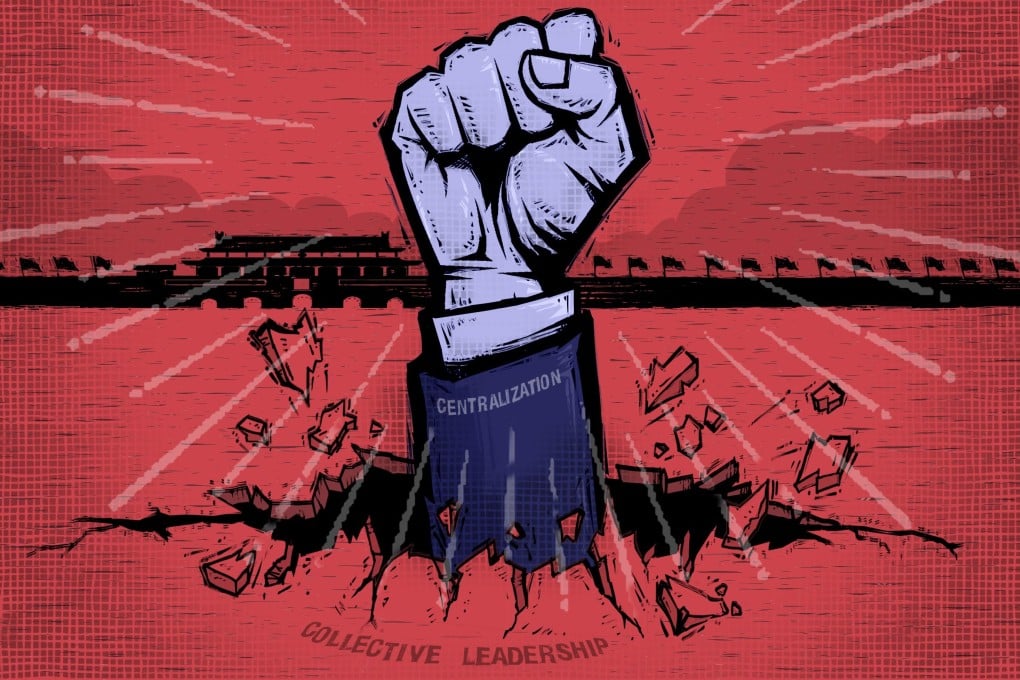How Xi Jinping’s end to China’s collective leadership model was years in the making
- Political shift made possible by Communist Party consensus to turn away from a system blamed for corruption and discontent, experts said
- The 20th party congress has swept aside mechanisms established after Mao Zedong’s death and concentrated power in Xi

Xi’s changes to the top echelons of the party’s decision-making bodies were bigger than expected, but they also chiselled away at party retirement norms and promotion trajectories, while stepping up the centralisation of power.
In a break with decades of precedent, Xi skipped consultations with party elders over the Politburo line-up, according to state news agency Xinhua. The size of the decision-making body was also cut from 25 to 24, greatly increasing the chance of a tied vote.
Experts believe the tremendous political shift was made possible – at least in large part – because of a consensus to put an end to the fragmentation of authority and intraparty democracy, seen as responsible for decades of corruption, factionalism and associated public discontent.
Xi seized on concerns in the party and the country to present the concentration of power as a solution to the acute political and economic problems faced by China, they said.
“He has made it clear that the compromises that existed in the first 30 or so years of the reform era would no longer apply: factions and divisions in the party would not be tolerated,” said Rana Mitter, professor of the history and politics of modern China at the University of Oxford.
“Xi’s calculation is likely to be that the Chinese economy is large enough that it can cope with a significant period of retrenchment, including relative isolation from global networks, zero-Covid restrictions and, above all, a strong political treatment of sensitive sectors such as technology.
